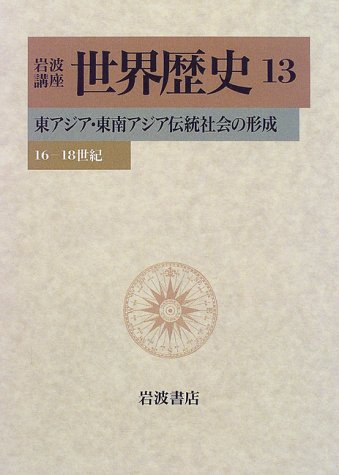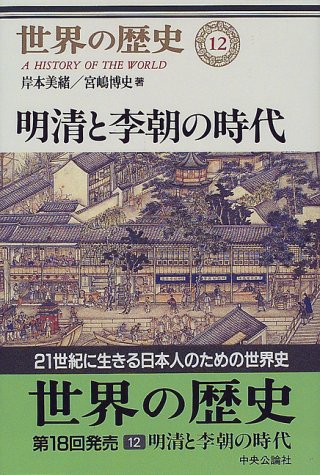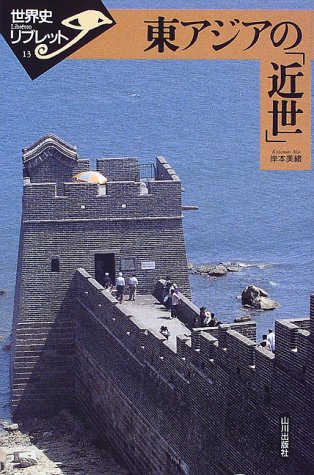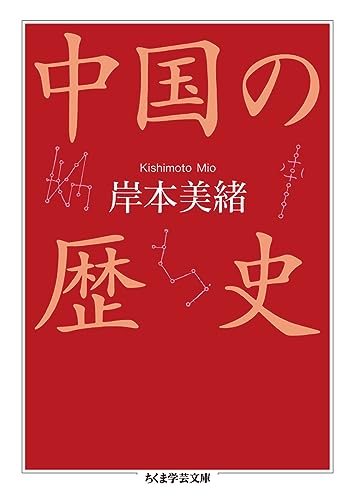8 0 0 0 IR インタヴュー・「東は東、西は西」か? : 岸本美緒氏、近綴和彦氏に聞く
- 著者
- 岸本 美緒 近綴 和彦
- 出版者
- 東京大学文学部西洋史学研究室
- 雑誌
- クリオ = Clio : a journal of European studies
- 巻号頁・発行日
- vol.7, pp.1-26, 1993-05
- 著者
- 岸本 美緒 キシモト ミオ Mio Kishimoto
- 出版者
- 立教大学史学会
- 雑誌
- 史苑 (ISSN:03869318)
- 巻号頁・発行日
- vol.77, no.1, pp.108-120, 2016-12
2 0 0 0 OA 清代における家族生活と契約
- 著者
- 岸本 美緒
- 出版者
- 東洋文庫
- 雑誌
- 東洋学報 = The Toyo Gakuho (ISSN:03869067)
- 巻号頁・発行日
- vol.101, no.2, pp.33-34, 2019-09
2 0 0 0 思想の言葉 亡国と亡天下
- 著者
- 岸本 美緒
- 出版者
- 岩波書店
- 雑誌
- 思想 (ISSN:03862755)
- 巻号頁・発行日
- no.1106, pp.2-6, 2016-06
2 0 0 0 妻を賣ってはいけないか?--明清時代の賣妻・典妻慣行
- 著者
- 岸本 美緒
- 出版者
- 中国史学会
- 雑誌
- 中国史学 (ISSN:09176578)
- 巻号頁・発行日
- no.8, pp.177-210, 1998-12
2 0 0 0 中国の身分制と社会秩序
本研究では、身分制度の諸側面を通底する「身分感覚」に焦点をあて、社会的意識という視点から、中国身分制度の全体像を長期的な視野で再構成することを目指した。具体的には、明初から清代中期に至る時期の良賤身分の問題を取り上げて、多様な史料を用いて実証的な研究を行い、以下の諸点を明らかにした。(1)明清時代を通じて「賤」観念の核心は、他者に対する服役性・従属性という点に存在した。(2)明代初期には、法律上の「賎民」を特定の限定された集団に限り、民間で形成される従属関係を法律上の「賤」と切り離す政策が取られた。(3)明代後期には、社会的流動性の増大に伴って服役的な産業が発展し、従来の政策が破綻すると同時に「賤」をめぐる議論が活発化した。(4)清朝に入り、18世紀前半の雍正帝の時代には、被差別集団の戸籍の廃止や契約による奴婢化の容認など、身分をめぐる幾つかの改革が同時になされたが、それらはいずれも、社会的流動性の増大を肯定するとともに、そこに生ずる上下格差を新たな身分制度のもとに秩序化しようとするものであった。(5)清朝のこのような政策は、社会的身分をめぐる激しい競争の一因となり、賎民の身分上昇を抑えようとする既存の紳士階層によってしばしば冒捐冒考紛争(科挙資格や官職の保有を禁じられた賎民が身分を偽って科挙資格・官職の保有をはかったという理由で告発され、訴訟などに至る紛争をいう)が起こった。(6)清代後期に良・賤の判定基準をめぐり煩瑣な法令が制定されたのは、こうした紛争の頻発を背景としている。以上、同時期の日本の身分制度とは大きく異なる明・清時代の身分制度の特色と展開につき、大筋の枠組を明らかにすることができた。
- 著者
- 岸本 美緒
- 出版者
- 歴史科学協議会
- 雑誌
- 歴史評論 = Historical journal (ISSN:03868907)
- 巻号頁・発行日
- no.837, pp.6-18, 2020-01
- 著者
- 岸本 美緒
- 出版者
- 岩波書店
- 雑誌
- 思想 (ISSN:03862755)
- 巻号頁・発行日
- no.1127, pp.80-100, 2018-03
1 0 0 0 東アジア・東南アジア伝統社会の形成 : 16-18世紀
- 著者
- [岸本美緒ほか執筆]
- 出版者
- 岩波書店
- 巻号頁・発行日
- 1998
1 0 0 0 OA 「老爺」と「相公」
- 著者
- 岸本 美緒
- 出版者
- 公益財団法人 史学会
- 雑誌
- 史学雑誌 (ISSN:00182478)
- 巻号頁・発行日
- vol.107, no.12, pp.2154-2155, 1998-12-20 (Released:2017-11-30)
1 0 0 0 歴史理論 (一九九一年の歴史学界 : 回顧と展望)
- 著者
- 岸本 美緒
- 出版者
- 公益財団法人 史学会
- 雑誌
- 史学雑誌 (ISSN:00182478)
- 巻号頁・発行日
- vol.101, no.5, pp.664-669, 1992
1 0 0 0 OA 「恆産瑣言」について
- 著者
- 岸本 美緒
- 出版者
- 東洋文庫
- 雑誌
- 東洋学報 = The Toyo Gakuho
- 巻号頁・発行日
- vol.57, no.1・2, pp.171-200, 1976-01
Heng ch’an so yen is a collection of family precepts left to posterity by Chang Ying, 1638-1708, a scholar who served and was close to Emperor, K’ang-hsi. The text emphasizes the security of investment in land as compared to that in commerce and discusses the secret of making the former more profitable. The author came from one of the influential famines native to T’ung-ch’eng County, An-ch’ing Prefecture, Anhwei Province, and one of his sons, Chang T’ing-yü, 1672-1755, later became a powerful minister in the reigns of Yung-cheng and Ch’ien-lung.At the time of writing Heng ch’an so yen, it seems, Chang Ying was the owner of more than one-thousand mou of cultivated lands, and his income consisted mostly of the proceeds from the rice collected as rent from the lands and sold for cash. It is a safe guess that his yearly income from the lands, after deducting expenses necessary for reproduction and livelihood and tax duties, amounted to a sum in silver enough for purchasing more than one-hundred mou. Thus it was possible for him to expand steadily the lands he owned.In spite of such highly secure nature of the management of his lands, Chang Ying could not help warning his descendants in his precepts against the danger of their downfall through selling away the lands. It was because he had witnessed too many of such unfortunate examples, in which the sons of a landowner would fall into poverty caused by the thin profit margin on land management, or be ruined after selling away their land holdings and going into commercial activities seeking higher profit. Low profitability of investment in land was a frequent subject of discussion in Ch’ing Chinese literature. It is interesting to note that Chang Ying hardly considered it relevant to discuss the heavy tax burden and the anti-rent resistance by the tenants, two great problems in the Yangtzekiang Delta, but regarded the low profitability as mainly caused by the poor crop resulting from the landowner’s neglect of the land management and the lower price of grain in comparison to other commodities. Moreover, he felt that the two main causes of difficulty could be overcome if the landowner stopped living in town and returned to the countryside so that his lands would be put to optimum use to make him self-supporting in livelihood. Such a view of Chang Ying’s appears to reflect the economic situation at T’ung-ch’eng, where market economy had not yet penetrated the countryside at that time.
1 0 0 0 OA 中国史の視座から
- 著者
- 岸本 美緒
- 出版者
- 公益財団法人 日本学術協力財団
- 雑誌
- 学術の動向 (ISSN:13423363)
- 巻号頁・発行日
- vol.23, no.4, pp.4_19-4_23, 2018-04-01 (Released:2018-08-10)
- 著者
- 岸本 美緒
- 出版者
- 校倉書房
- 雑誌
- 歴史評論 (ISSN:03868907)
- 巻号頁・発行日
- no.806, pp.68-80, 2017-06
1 0 0 0 明清と李朝の時代
- 著者
- 岸本美緒 宮嶋博史著
- 出版者
- 中央公論社
- 巻号頁・発行日
- 1998
1 0 0 0 追悼 田中正俊先生
- 著者
- 岸本 美緒
- 出版者
- 公益財団法人史学会
- 雑誌
- 史學雜誌 (ISSN:00182478)
- 巻号頁・発行日
- vol.112, no.1, pp.112-114, 2003-01-20
1 0 0 0 IR 清末における「奴隷」論の構図
- 著者
- 岸本 美緒
- 出版者
- お茶の水女子大学文教育学部人文科学科比較歴史学コース内読史会
- 雑誌
- お茶の水史学 (ISSN:02893479)
- 巻号頁・発行日
- no.56, pp.179-214, 2012
1 0 0 0 象形文化の継承と創成に関する研究
本研究プログラムは、人文科学の基礎となる「原資料批判の方法論」に関する再評価と情報科学と連携した新たな資料学の構築を目的としている。この目的遂行のために象形文化資料のデジタル画像とその記載データに基づく象形文化アーカイブを構築する一方で、積聚された文書資料による研究を併用し、歴史空間の復元とその解析について、以下のような成果をあげた。A.古代ローマ文化および日本近世文化を中心とした象形文化アーカイブを構築した。特に、ポンペイとローマに関するアーカイブの完成度の高さは、国際的に注目されている。B.アーカイブ構築過程に置いて、その媒介資料となるアナログ写真とデジタル画像の比較研究を行い、資料の色彩表現に関してはアナログ写真が優れていることを明らかにした。C.象形文化資料の記載について、多言語使用の可能性を研究し、複数の言語システムを活用し、成果をあげた。D.稀覯本などの貴重文献資料のデジタル化を行い、資料の復元研究を行った。たとえば、1800年ごろに活躍した版画家ピラネージの作品をデジタル化し、そこに表された情景を現代と比較し、新古典主義の特質を明らかにした。E.こうした象形文化アーカイブを活用し、共時的研究を行った。特にポンペイに関するアーカイブ構築によりポンペイ遺跡内における地域的特徴を明確にし、新たな社会構造に言及するまでに至った。F.日本近世文化に関しては、回向院周辺の広場的空間復元研究を行った。上記した数々の実績を基礎として、今後も古代ローマに関する象形文化資料を中心とした収集・公開を進め、研究を推進する予定である。このため、現在の研究組織を継続させるのみならず、象形文化研究拠点のハード・ソフトの両面で改善をはかり、国際的な「卓越した研究拠点」として成長させることが期待されよう。





